Everything is stable at Vulyk: how GlobalGiving’s support helped organize the lives of displaced persons at the Kolomyia shelter
Publication date: November 19, 2025
Author: Yuliia Bilyk, Communications Manager, Legal Development Network
Since March 2023, the Legal Development Network member organization “Trikutnyk” from Kolomyia, Ivano-Frankivsk region, has been administering “Vulyk”, a shelter for internally displaced persons. After two years of operation, the organization faced a problem typical of many compact settlements in Ukraine. Conflicts between residents, lack of coordination, and no systematic approach to supporting IDPs created a tense atmosphere. Thanks to flexible funding from GlobalGiving, Trikutnyk found an administrator to whom it entrusted the management of the shelter. This changed the situation for the better. Read on to find out how Vulyk came into being and is developing today.
The emergence of Vulyk
After the full-scale invasion, there was an urgent need for housing for internally displaced persons in Kolomyia. The “Trikutnyk” organization was involved in settling new arrivals in the homes of local residents, but it soon became clear that more permanent solutions were needed.
At that time, Vitaliy Okhrimenko, director of strategic development at the Legal Development Network, was staying in Kolomyia with his family. Together with Vitalii, the Trikutyk team went to the Kolomyia City Council, where they requested premises for a shelter. After several months of negotiations, they were offered the premises of a former kindergarten — a two-story building with an area of about 600 m². Since the building had not been used for over 15 years, everything had to be changed.

“The building was in terrible condition: huge windows that had to be rebuilt, outdated utilities. The renovation work took nine months, including the time needed to prepare the documentation,” recalls Solomiya Zinets-Matsyshyn, Head of the NGO “Trikutnyk”.
The first partners in creating the shelter were volunteers from the organization Building Ukraine Together, who undertook the repairs, while the design was developed by a friend who is an architect on a voluntary basis. The Ukrainian Educational Platform provided the shelter with furniture. In total, various partners, including the Kolomyia City Council, contributed about 7 million hryvnias for repairs, furniture, and equipment.
Fully equipped with 18 bedrooms, two kitchens, five bathrooms, laundry rooms, a training room, and a children’s room, the Vulyk shelter officially opened in March 2023.
“Everything in the shelter was brand new at the time of opening. We provided each family with bedding, towels, a good bed with an orthopedic mattress, and wardrobes,” emphasizes Solomiya Zinets-Matsyshyn.
Subsequently, the Kolomyia City Council brought in drying machines, the public organization “STAN” insulated the facade and brought in a generator, and other partners helped the shelter in every way possible.
When coordination saves the day
Despite the well-equipped space, a year after opening, a crisis arose at Vulyk. Without systematic administration and control, residents often provoked conflicts among themselves. It happened that the head of the NGO Trikutnyk was forced to come to the shelter late at night and, together with the police, stop the clashes.
Just when the situation at Vulyk became extremely tense, causing concern among city authorities, a “lifeline” appeared in the form of flexible funding from GlobalGiving. Thanks to these funds, it was possible to find a professional and responsible person, Kateryna Hrankina, who became the administrator of Vulyk.
Kateryna herself is an internally displaced person, has volunteer experience, knows the public sector of Kolomyia well, and knows how to establish the necessary connections.
“Her presence, her involvement every day, her understanding of the processes — this is an incredible advantage in helping someone who is coming to the community for the first time,” notes Solomiya Zinets-Matsyshyn.
Kateryna Hrankina quickly got down to business. The first thing she did was to establish systematic communication.
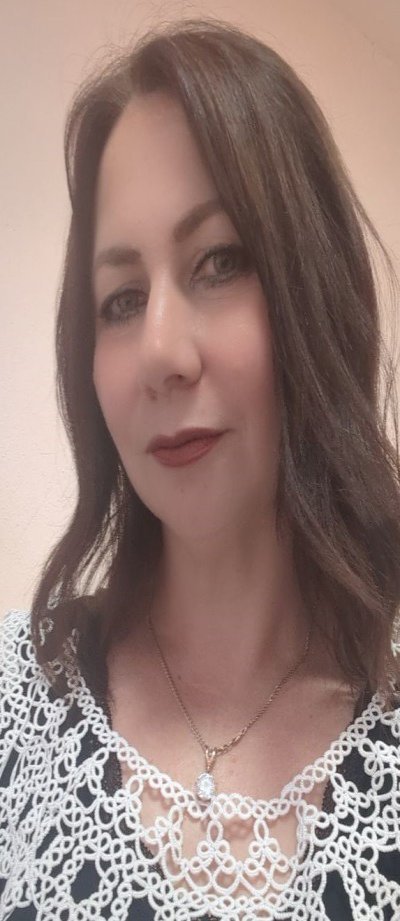
“I have become a central point of contact for people to turn to at any time and resolve any issues they may have — all through me, rather than in a chaotic manner as before. Even if I am not at work, such as on a day off, residents know that they can always call me if necessary,” says Kateryna Hrankina.
The administrator has also established close ties with humanitarian organizations, medical institutions, and community social services in the city.
“Caritas has a project called ‘Resilience,’ which includes psychological activities. I arranged for these activities to be held twice a month at our shelter. People also bring used items to Vulyk, which can be taken by anyone who needs them. A friend of mine donated food packages, which were distributed to nine families. I also arranged for children’s clothes,” says Kateryna Hrankina.
An important part of the work was establishing contact with the police and social services to respond quickly to conflicts. But most importantly, Kateryna managed to organize regular events for residents to help them take their minds off their problems and integrate into the community.
Who lives in Vulyk?
Today, about 50 people live in the shelter. Among them are families with children, elderly people, and veterans.
“We have three families with children, a woman with a disabled child, and a disabled veteran who has had his lower limbs amputated,” lists Kateryna Hrankina.
She emphasizes that the conditions at Vulyk are among the best among shelters in Kolomyia. Each room is designed for a separate family or a small number of people, and there are two shared kitchens where residents can prepare food.
“Compared to other shelters, where five or six people live in one room, we have very good conditions. Our residents are so used to having their own space that they don’t even want to live with another person,” notes Kateryna Hrankina.
At the same time, the administrator points out the main problem that causes conflicts in the shelter — the residents’ unemployment.
“For a long time, many organizations provided humanitarian aid, there were payments to IDPs, and completely free accommodation. This has led to a situation where people now don’t want to do anything, find a job, or develop their own business. As a result, there are quarrels and arguments. On the other hand, this behavior is not at all characteristic of those who found work from the very beginning and are working,” explains Kateryna Hrankina.
When systemic support is needed
One of the most difficult cases the administrator had to deal with was the settlement of Vasyl, a veteran with both lower limbs amputated, and his fiancée Yana.
“When Vasyl arrived from the hospital, he had no benefits at that time. He was simply discharged from the hospital and settled with us. No one asked if he had food or if he was ready to live independently in a wheelchair,” says Kateryna Hrankina indignantly.
The administrator immediately took action: she sought humanitarian aid, bought food at her own expense for the first few days, and established contacts with charitable organizations. The hardest part was finding psychological support for Vasyl and his partner.
“We saw that the young man needed psychological support. The family doctor prescribed medication and said that he needed to see a psychologist at least once a week. I found a psychologist, Anzhelika, who took Vasyl and Yana into family therapy. The psychologist works with Vasyl once a week, with his girlfriend once a week, and with both of them once a week. Now their relationship is improving,” says Kateryna Hrankina.
Solomiya Zinets-Matsyshyn emphasizes that without Kateryna, such work would have been impossible:
“If Kateryna weren’t here, I don’t know how we would cope. I would probably just move into the shelter and live with the residents. Kateryna’s presence and involvement every day is what allows us to truly help people.”
New challenges
Despite its well-established work, the shelter is now facing problems typical of wartime. The main one is the reduction in humanitarian aid.
“When we first opened, there was a lot of humanitarian aid. Now there is none at all. The Red Cross does not provide any, and other organizations rarely provide anything. But people constantly need household chemicals, hygiene products, and clothing,” says Kateryna Hrankina.
Another problem is the wear and tear of furniture and appliances purchased three years ago. They need to be replaced, but it is difficult to find funding for this.
In addition, there is uncertainty about the future of the shelter. The agreement between “Trikutnyk” and the Kolomyia City Council expires in March 2026.
“There is no concrete decision yet on what will happen next. People are used to living here, and many cannot or do not want to leave. In Ukraine, there is almost nowhere to resettle people who have already been displaced within the country. There is nowhere to go,” notes Solomiya Zinets-Matsyshyn.
At the same time, the shelter administrator is focusing on the fact that new waves of displaced persons may arrive in Ivano-Frankivsk region in case of evacuation from other regions.
“Ivano-Frankivsk region has been asked to accept up to 100,000 people. Currently, all compact settlement sites that work with shelters are calculating how many places they can provide temporarily. We currently have three rooms available and can accommodate 12 more people. If there is an evacuation, we have additional beds in the training room — we can accommodate up to 50 people,” says Kateryna Hrankina.
Plans for the future
The experience of “Trikutnyk” shows that even a well-equipped space for IDPs requires the constant presence of a coordinator who not only resolves conflicts but also works systematically to integrate displaced persons, establishes links with humanitarian and social services, and organizes events and individual support for those who need it. The coordination that exists now, made possible by support from GlobalGiving, has made life in the shelter orderly and harmonious.
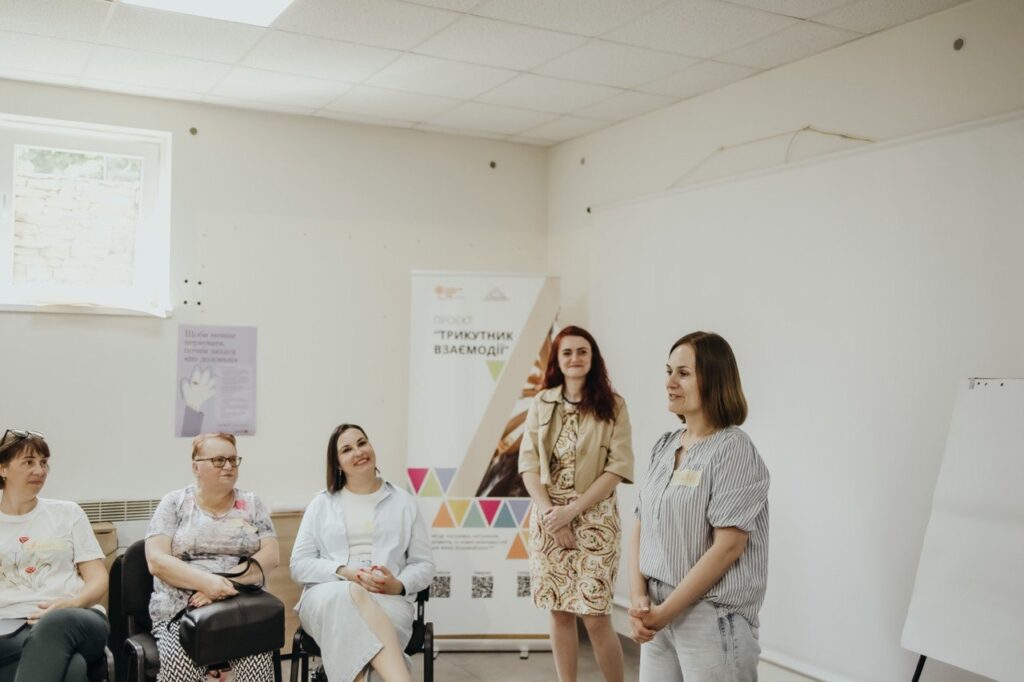
In addition to working with Vulyk, the organization is developing institutional areas of its activities. The team includes a coordinator, manager, accountant, project manager, translator, and lawyer. The organization is involved in a project to retrain and educate veterans, particularly in the field of IT and digital professions. Once a week, they also provide free legal advice to shelter residents, veterans, their families, and anyone else in need.
Future plans include working with young people on issues of democracy and European integration, supporting local artists and women’s communities, and community development. The organization also plans to expand its influence to other regions of Ukraine, in particular to Mykolaiv, where it already has experience working.
This material was created by the Legal Development Network with the support of the international charitable platform GlobalGiving. The content of this publication is the sole responsibility of the Legal Development Network.
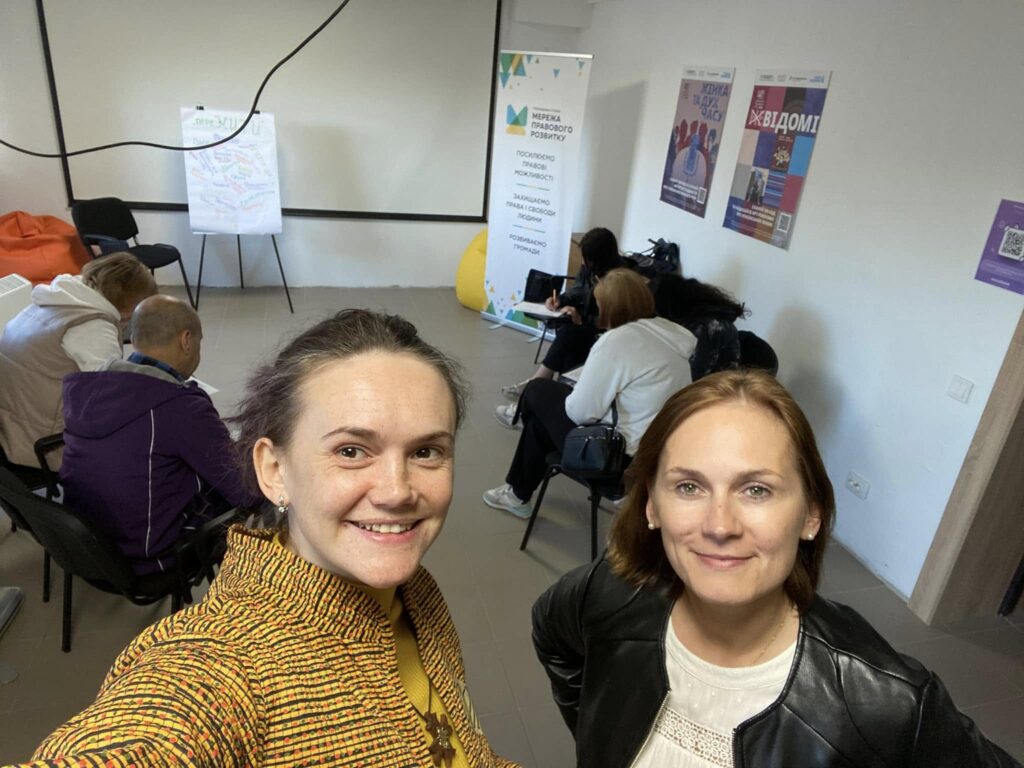
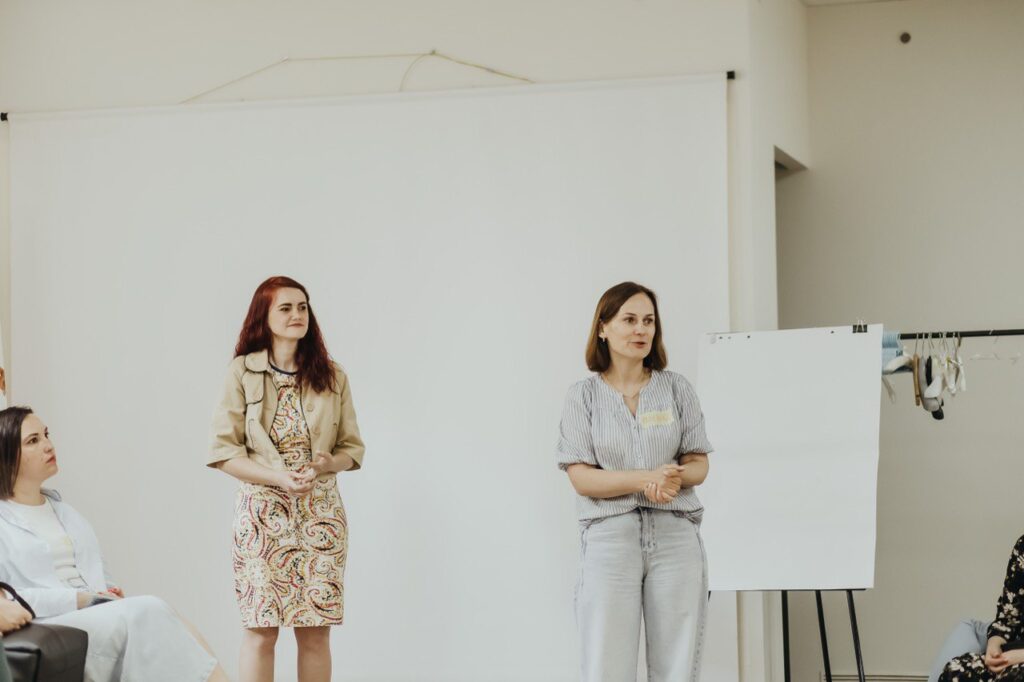
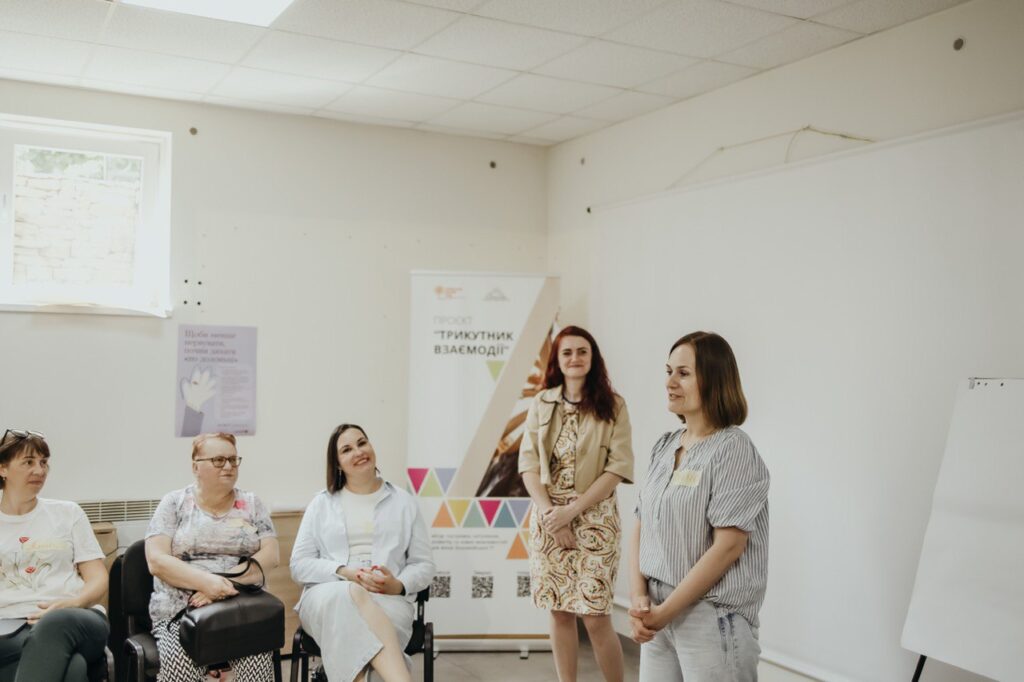
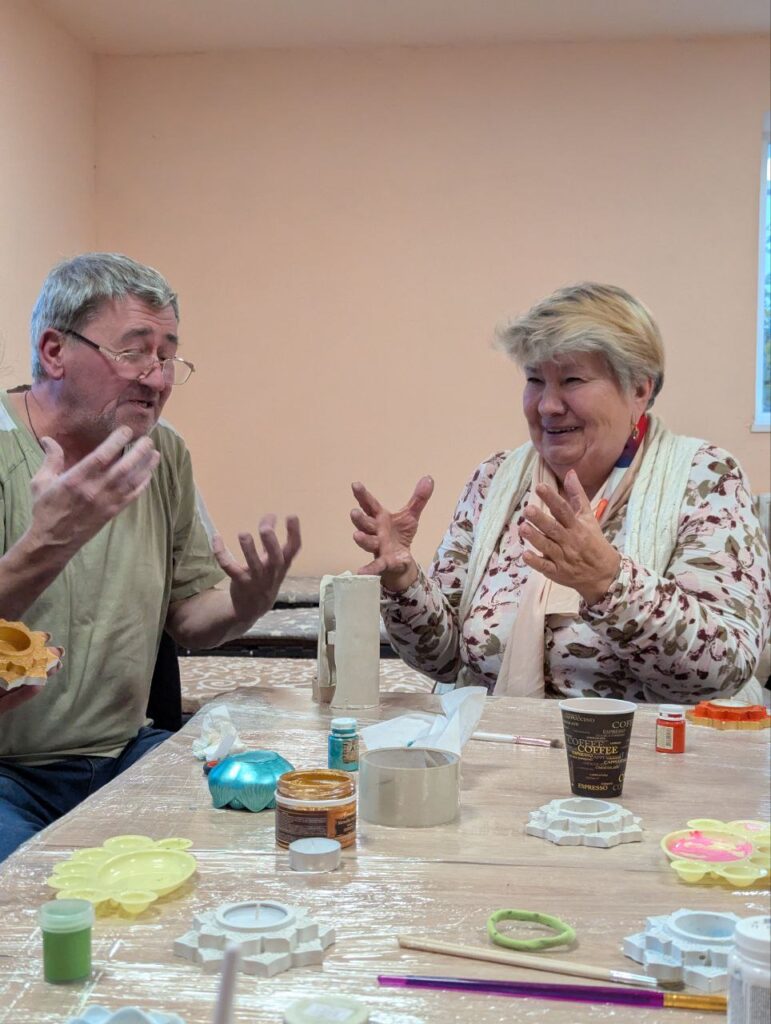
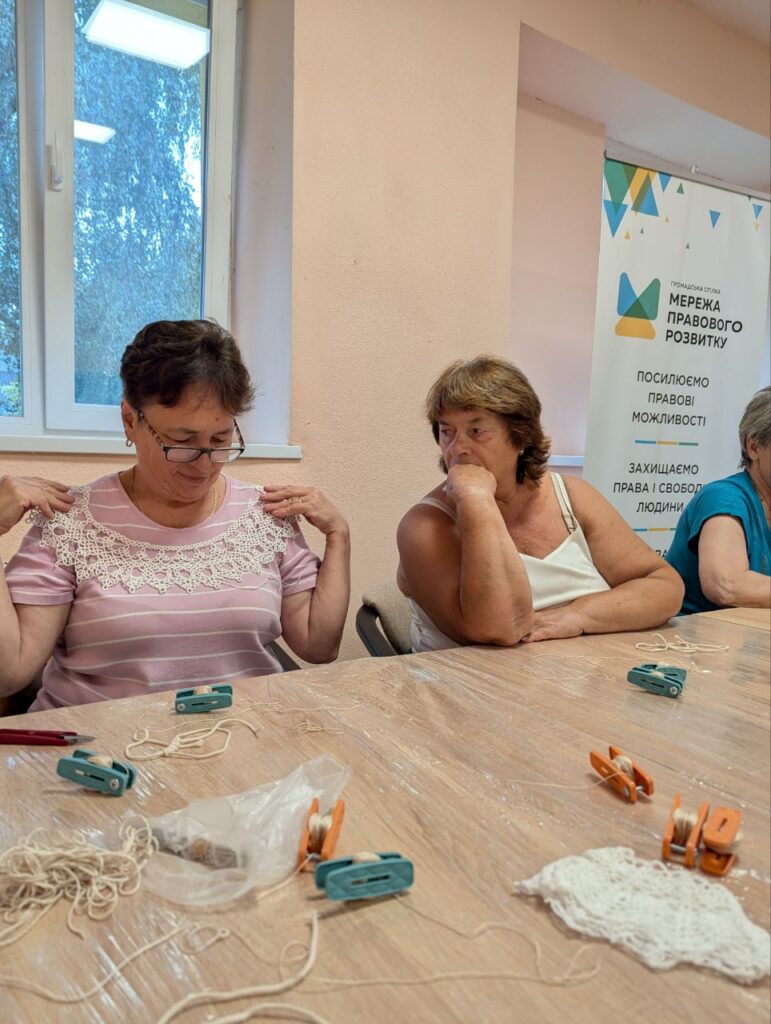
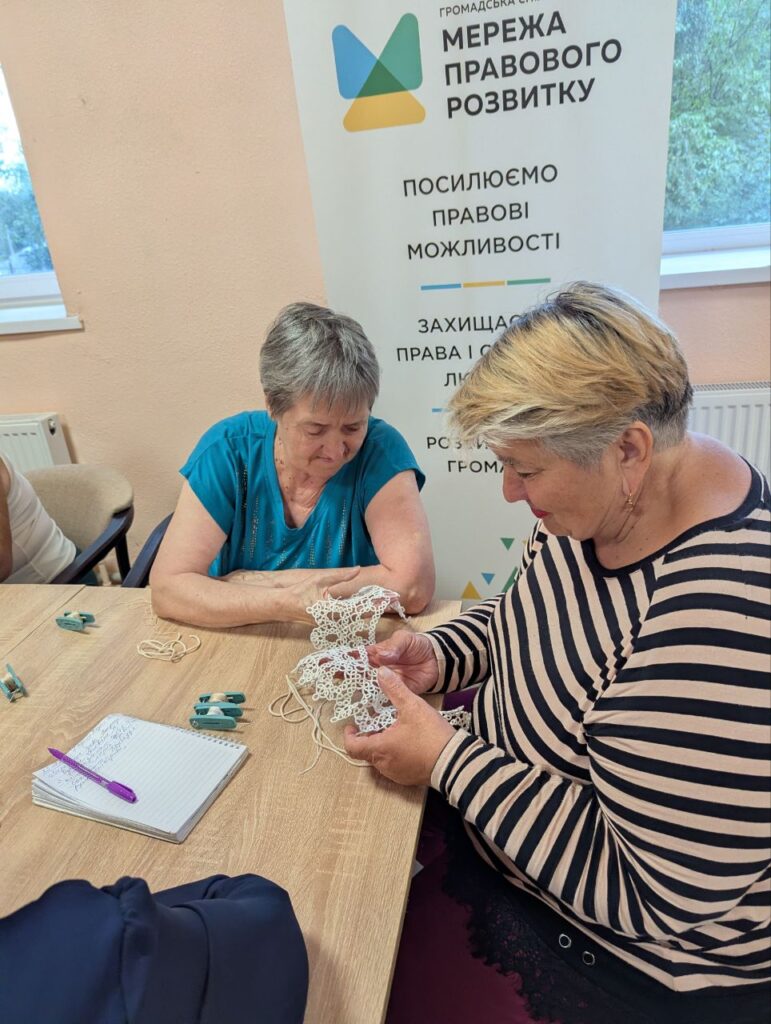
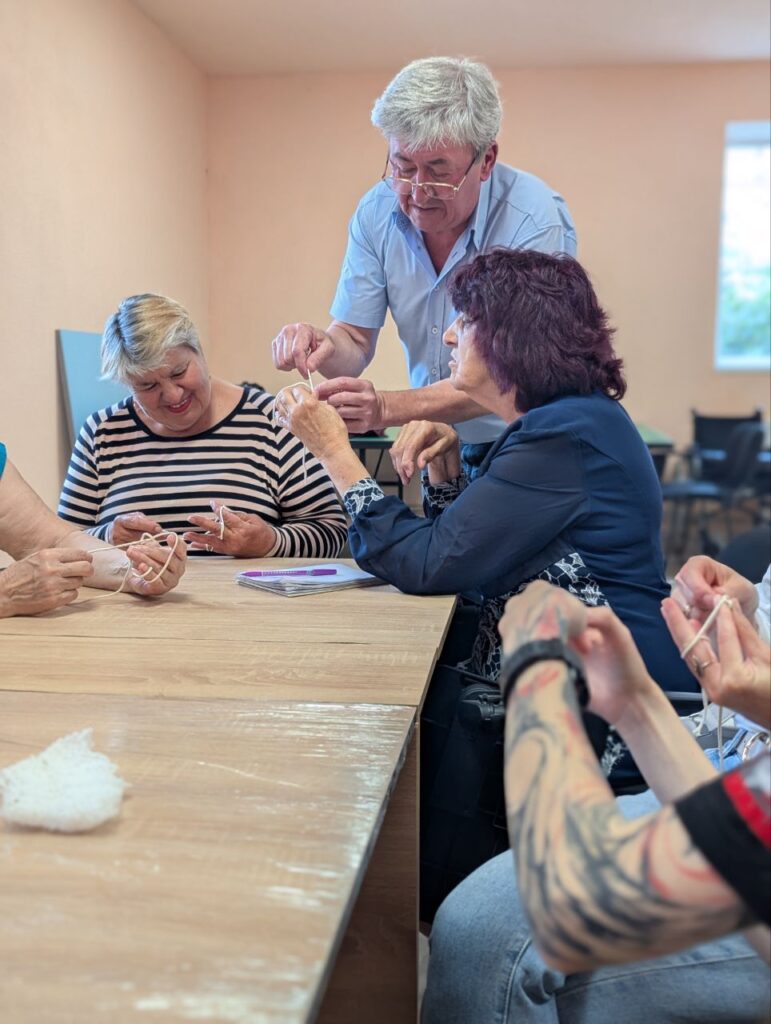
|
Отримайте поглиблену консультацію через чатбот LawLink
|
P. S. In June 2024, the Legal Development Network (LDN) launched a crowdfunding campaign, Recovery of The South of Ukraine , as part of the crisis response program #StandWithUkraine.
You can Recovery of The South of Ukraine |
If you have notices an error on the web-site, please, highlight the text and press ctrl-enter.
Have you found your solution? Help others!
Print a poster
Print and place the Network's poster on a notice board in your entrance hall
Become a volunteer
Become a volunteer and assist others in finding problem solutions
Do you need a consultation ?
Online chat
Ask question and one of the LDN's lawyers
will answer it.
Chat's schedule: from 10 to 16
every day
Chatbot
Ask questions via LawLink Bot in any convenient way. LawLink Bot is a smart and digital legal assistant created by the Legal Development Network.

Our initiatives
The Legal Development Network implements comprehensive projects aimed at strengthening human rights, developing capable communities, and building sustainable tools for access to legal aid. We work at the intersection of advocacy, legal education, and local coordination of humanitarian response.
